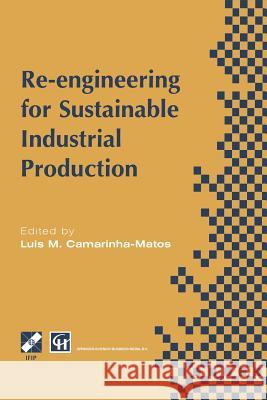Re-Engineering for Sustainable Industrial Production: Proceedings of the Oe/Ifip/IEEE International Conference on Integrated and Sustainable Industria » książka
Re-Engineering for Sustainable Industrial Production: Proceedings of the Oe/Ifip/IEEE International Conference on Integrated and Sustainable Industria
ISBN-13: 9781475763850 / Angielski / Miękka / 2013 / 535 str.
Re-Engineering for Sustainable Industrial Production: Proceedings of the Oe/Ifip/IEEE International Conference on Integrated and Sustainable Industria
ISBN-13: 9781475763850 / Angielski / Miękka / 2013 / 535 str.
(netto: 768,56 VAT: 5%)
Najniższa cena z 30 dni: 771,08
ok. 22 dni roboczych.
Darmowa dostawa!
In today's changing world, enterprises need to survive in an ever volatile competitive market environment. Their success will depend on the strategies they practice and adopt. Every year, new ideas and concepts are emerging in order for companies to become successful enterprises. Cross Border Enterprises is the new 'hot' topic arising in the business process world at present. Many terms have been coined together and are being driven in the popular business press to describe this new strategy of conducting business, ie. Extended Enterprise (Browne et al., 1995; O'Neill and Sacket, 1994; Busby and Fan, 1993; Caskey, 1995), Virtual Enterprise (Goldmann and Preiss, 1991; Parunak, 1994; Goranson, 1995; Doumeingts et al., 1995), Seamless Enterprise (Harrington, 1995), Inter-Enterprise Networking (Browne et al., 1993), Dynamic Enterprise (Weston, 1996) and so on. Many people have argued that they mean the same thing, just using different words. Others feel they are different. But how different are they? In this paper the authors will present some basic lines required from this new strategy for conducting and coordinating distributed business processes (DBP), as well as trying to clarify the particularities of two of the widest spread terms related to it: Virtual and Extended Enterprise. 2 CLUSTERS OF PRESSURES The business world currently faces an increased trend towards globalisation, environmentally benign production and customisation of products and processes, forcing individual enterprises to work together across the value chain in order to cope with market influences.











